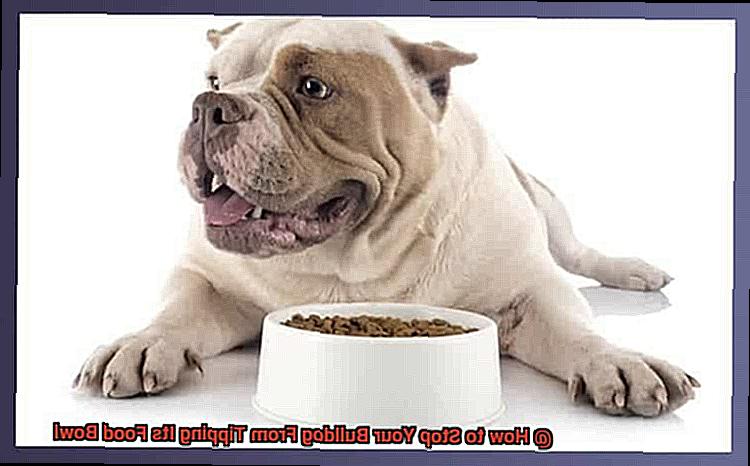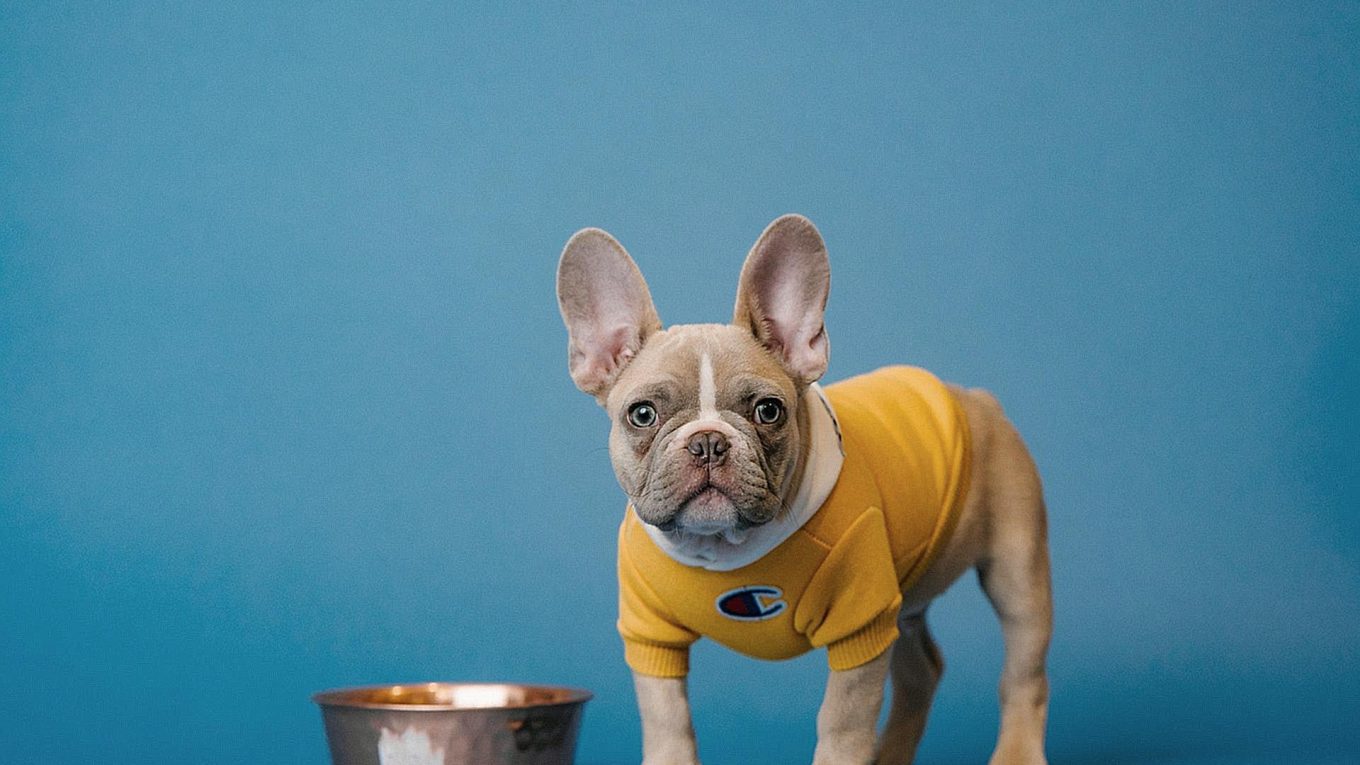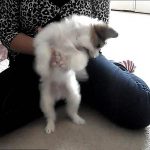How to Stop Your Bulldog From Tipping Its Food Bowl?
Does your bulldog like to tip over its food bowl? If so, you’re not alone. It can be extremely frustrating when your pup is constantly making a mess and trying to get to their food. But don’t worry – there are ways to stop it!
In this blog post, we’ll explore why bulldogs may tip their bowls and offer some straightforward solutions.
You’ll learn how to discourage your bulldog from tipping its food bowl once and for all. We’ll discuss using heavier bowls or providing distractions at meal times.
So let’s get started!
Why Your Bulldog is Tipping Its Bowl
Contents
- 1 Why Your Bulldog is Tipping Its Bowl
- 2 How to Stop Your Bulldog From Tipping Its Food Bowl
- 3 Reasons Why Dogs Sleep With Their Food Bowls
- 4 Reasons Why Dogs Carry Their Empty Food Bowls
- 5 Reasons Why Dogs Back Away From Their Food Bowls
- 6 Tips for Ensuring That Your Dog Does Not Tip Its Food Bowl Again
- 7 How to Teach Your Dog to Leave His or Her Food Bowl Alone
- 8 What To Do If You Cannot Get Your Dog To Stop Tipping Its Food Bowl
- 9 Conclusion
Are you wondering why your Bulldog is tipping its bowl? You are not alone! This peculiar behavior is common among Bulldog owners, and it’s usually due to boredom or anxiety.
If your pup is bored, it may be trying to find something amusing by tipping its bowl. On the other hand, if your bulldog is anxious, they could be releasing some of their pent-up energy by doing this.
Make sure your Bulldog has plenty of chances for physical activity and mental stimulation throughout the day. Interactive toys and games can provide an engaging environment and help prevent boredom-related habits such as tipping the bowl.
Also, watch out for signs of anxiety like pacing, panting, and excessive barking. If you see these signs, try calming activities like going for a walk or playing with a toy.
Tipping its bowl can be a frustrating habit for many Bulldog owners, but with the right tactics in place, you can help reduce this behavior and make sure your pup stays happy and healthy.
How to Stop Your Bulldog From Tipping Its Food Bowl
Many Bulldog owners struggle with this behavior, but there are some easy steps you can take to discourage your pup from tipping their food bowl. Read on to learn how to stop your bulldog from tipping its food bowl.
Identifying the Cause
The first step in stopping your Bulldog from tipping its food bowl is to identify why it is doing it in the first place. Common causes include boredom, anxiety, or a desire for attention. Once you have identified the cause of the behavior, you can begin to address it.
If your Bulldog is tipping its bowl out of boredom, then increasing their exercise and providing more mental stimulation can help reduce this behavior.
If your Bulldog is anxious or seeking attention when they tip their bowl, then providing them with a safe space and spending more time with them can help alleviate this issue.
Providing the Correct Environment
Making sure that your Bulldog’s eating area is free from distractions like other pets, people, and loud noises will go a long way in preventing them from tipping their food bowl. Provide a comfortable place with enough space for them to eat without feeling threatened or crowded.
Additionally, make sure your Bulldog has access to plenty of fresh water and that their food bowl is placed in a comfortable spot where they can eat without feeling crowded or threatened.
Training Your Bulldog
Training your Bulldog to stay in their designated eating area and not move away from it until they are done eating will help prevent them from tipping their food bowl.
This can be done by using positive reinforcement techniques, such as praising them when they stay in their designated eating area and withholding treats when they move away from it.
Using The Right Food Bowl
Using a food bowl with a non-skid bottom so that it won’t tip over easily when your Bulldog moves around while eating will also help prevent them from tipping over their food bowl.
If possible, use an elevated feeder, which will make it harder for them to tip over the bowl while they are eating.
If you have multiple dogs, feed them separately so that one dog doesn’t try to take the other’s food or feel threatened by another animal while they are eating.
Finally, if all else fails, consider using a heavy-duty food bowl that will be difficult for your Bulldog to tip over.
Reasons Why Dogs Sleep With Their Food Bowls
Have you ever noticed your pup sleeping with their food bowl? It turns out that there are a few reasons why dogs do this.

For starters, they may be trying to protect their food from other animals or people. This natural instinct to guard their food can make them feel more secure when it is close by.
They may also be bored or anxious and use the bowl as something to do. Sleeping with their food bowl can provide them with a sense of security and familiarity in unfamiliar environments, helping them relax.
Finally, some dogs simply enjoy the warmth of the bowl against their body while they snooze.
Reasons Why Dogs Carry Their Empty Food Bowls
You may be wondering why they do this. It turns out that dogs take their empty food bowls for a few reasons.
For starters, they may be trying to demonstrate ownership of the bowl. By picking it up and carrying it around, they could be claiming it as their own.
Another explanation is that they may be bored or anxious. If your pup isn’t getting enough exercise or stimulation, they might wander with their bowl to occupy themselves.
Dogs can also carry their empty food bowls in an effort to gain attention from their owners. If a pup is feeling lonely or ignored, they could pick up the bowl to get some love from you!
It’s also possible that some dogs are looking for a more comfortable place to eat or sleep with the bowl, such as on the couch or in another room.
Additionally, some dogs may be attempting to protect their food from other animals in the home by taking it with them wherever they go.
Reasons Why Dogs Back Away From Their Food Bowls
Do you ever find your pup hesitating at their food bowl? If so, there are several potential explanations for this behavior.
Stress and anxiety can be major factors in a dog’s reluctance to eat. Dogs are incredibly sensitive creatures and can easily become overwhelmed by loud noises, unfamiliar people, or other animals in the home. If this is the case, they may back away from their food bowl as a way of avoiding the situation.
Illness can also be a factor in why dogs avoid their food bowls. If your pup is feeling under the weather due to an upset stomach or digestive issues, they may not have much of an appetite and thus may not approach their food bowl.
Boredom with their current diet is another common reason why dogs back away from their food bowls. If your pup isn’t being served a variety of flavors and textures in their meals, they may become disinterested in eating altogether, leading them to stay away from their food bowl.
If another animal or person in the home is making your dog feel threatened, they may choose to back away from their food bowl as a way of protecting themselves and avoiding conflict with that animal or person. In this case, it’s important to give your dog plenty of space while they’re eating so that they don’t feel threatened or scared.
Lastly, if you’ve been scolding your pup for eating too quickly or for some other reason relating to their food bowl, they may have been conditioned to avoid it entirely. To help encourage them to eat normally again, try providing positive reinforcement when your dog eats properly instead of negative reinforcement.
Tips for Ensuring That Your Dog Does Not Tip Its Food Bowl Again
Don’t worry; there are several simple steps you can take to ensure that your Bulldog does not tip his food bowl again.
Elevate the Bowl
Make sure your Bulldog’s bowl is elevated off the ground and is at a comfortable height for them to eat. This will make it more difficult for them to knock the bowl over and help them eat properly.
Positioning the Bowl in a Corner or Against a Wall
Placing the food bowl in a corner or against a wall can help keep your Bulldog’s food bowl from tipping over while eating, as well as keep the area around their food bowls clean and free of spills.
Feeding Smaller Meals More Frequently
Feeding smaller meals throughout the day instead of one large meal can help reduce the amount of time your dog spends eating and reduce the chances of them tipping their food bowl over.
Feeding Away From Distractions
Feed your Bulldog in an area away from other pets or children who may be playing and causing distractions.This will help keep them focused on eating without being distracted by others, which may result in them tipping their food bowl out of curiosity or excitement.
Feed in Separate Room If Possible
If possible, we suggest feeding your bulldog in a separate room away from other family members or pets. This will help them stay focused on eating without being distracted by others, which may result in them tipping their food bowl out of boredom or curiosity.
How to Teach Your Dog to Leave His or Her Food Bowl Alone
Establishing a Routine for Teaching
Training your dog to leave its food bowl alone is an essential part of keeping your bulldog safe and healthy.
To begin, it’s important to establish a daily routine for feeding your pup. Feed them at the same time each day, and give them the same amount of food each time.
This will help teach them that they should not touch their food bowl until you give them permission to do so.
Positive Reinforcement Strategies
Positive reinforcement is key when it comes to teaching your bulldog to leave its food bowl alone.
If they obey the “leave it” command or stay in one spot while eating, reward them with treats or praise.
This will encourage good behavior and make it easier for them to learn what you expect from them.
Setting Boundaries
It’s also important to set boundaries for your dog when it comes to their food bowl.
Let them know that even if there is still some food left in it, they are not allowed to move or play with their food bowl without permission from you first.
This will help reinforce the idea that they should leave their food bowl alone until given permission otherwise.
Providing Enough Exercise
Make sure you are providing enough exercise and mental stimulation throughout the day so that your dog doesn’t become bored and resort to tipping over its food bowl out of boredom or frustration.
Take them on walks, play fetch, or engage in other activities that will keep their minds and bodies active during the day.
Deterrents
If all else fails and your dog continues to tip over its food bowl, try using deterrents such as a water spray bottle or clapping your hands loudly as a distraction technique from this behavior.
These strategies can be very effective in reinforcing the belief that tipping over their food bowl is an unhealthy habit that should not be repeated again.
What To Do If You Cannot Get Your Dog To Stop Tipping Its Food Bowl
If you’ve tried every trick in the book and are still coming up short, it may be time to take a different approach.
First, consider changing the type of food bowl you’re using. Different dogs may not feel comfortable with certain bowls or materials, so experiment with new styles until you find one that works for your pup.
Additionally, rather than giving them one large meal at once, try breaking it up into smaller meals throughout the day. This can help reduce their anxiety and make them feel more secure when eating.
If all else fails, it may be time to consult a professional behaviorist who can provide more tailored advice on how to address this issue with your specific Bulldog.
A qualified behaviorist or veterinarian can identify the underlying cause of your pup’s behavior and recommend an appropriate course of action.
This could include providing additional mental stimulation and exercise, expanding their diet to include more nutritious food, or creating a safe space where they can eat without feeling threatened or anxious.
Finally, if your Bulldog is showing signs of aggression towards other animals or people, it is essential that you seek professional help as soon as possible. With the right guidance and support from a licensed trainer, you’ll be able to teach your dog how to be more efficient and enjoy mealtimes again.
Also Read: How to Stop Your Bulldog From Eating Too Fast?
Conclusion
Tipping the food bowl can be a frustrating habit for Bulldog owners, but there are ways to help reduce this behavior.
Pinpoint the source of the tipping – whether it’s boredom, anxiety, or a desire for attention – and take steps to address it.
Create a distraction-free eating area and provide plenty of exercise and mental stimulation throughout the day.
Positive reinforcement techniques can also encourage healthy eating habits.
Additionally, consider using a heavier bowl or an elevated feeder as they will be harder to knock over when eating.
If all else fails, seek expert assistance from a licensed behaviorist or veterinarian who can give you tailored advice on how to manage your particular breed.




